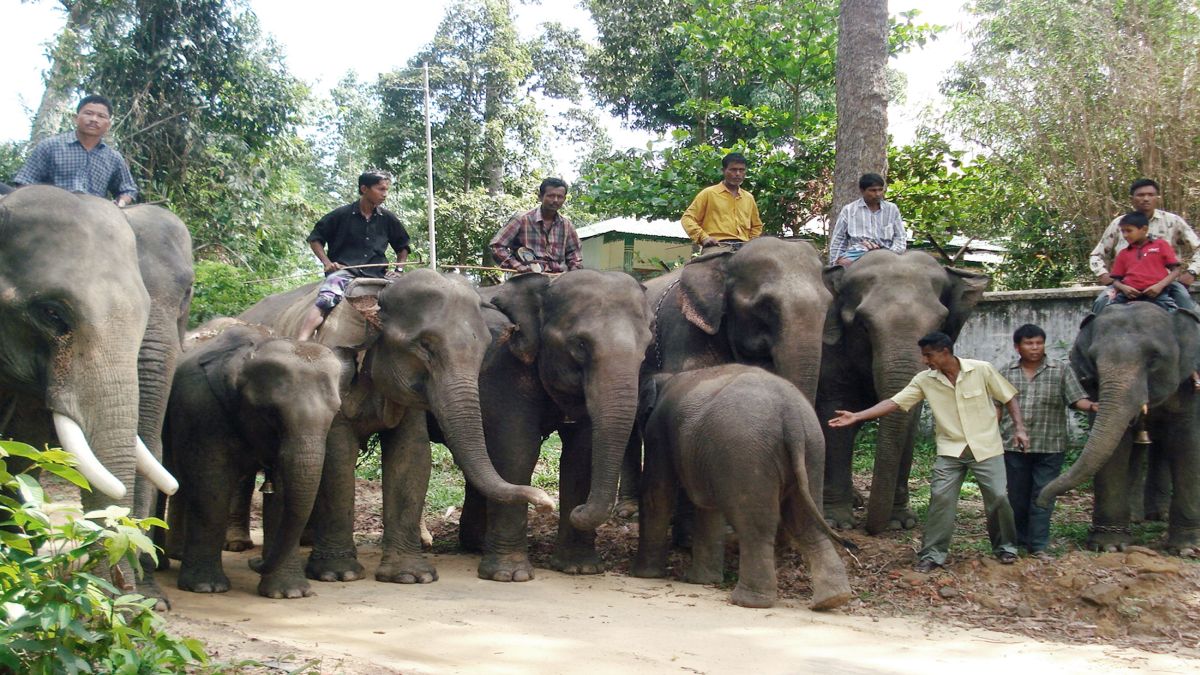Bangladesh has halted adoption of its wild elephants.
The high court on Sunday granted the country’s highly endangered wild elephant population legal protections in order to protect them from exploitation.
Animal rights groups have hailed the high court's decision , which puts an end to the capture and captivity of young Asian elephants.
Here’s why it matters.
Legal protection
There are around 200 Asian elephants in Bangladesh.
Nearly half of them are in captivity.
The forest department previously issued licensing allowing logging companies to capture these elephants.
The companies would then use the elephants to haul logs.
However, the elephants would also be made to perform in the circus and in street shows.
The court intervened as this violated the the terms of the licences.
“The high court today suspended all licences for the captive rearing of elephants,” Amit Das Gupta, deputy attorney general of the country, told AFP.
Bangladesh was once a major home for Asian elephants.
But poaching and habitat loss saw their numbers dwindle.
So much that they have now been declared critically endangered.
The International Union for Conservation of Nature (IUCN) says there are nearly 100 captive Asian elephants in Bangladesh, nearly half the amount of elephants left in the wild in the country.
As logging and farming encroach on elephant territory, young animals are captured in the country’s northern and southeastern hills.
The forestry department has previously issued licences to logging groups who use the elephants to drag tree trunks, or to circus groups — to adopt the animals.
Impact Shorts
More ShortsBut Gupta said the elephants were being exploited and used for begging and “street extortion”, breaking the licence terms.
Will end the brutal training
Rights groups claim that the high court’s decision to suspend licences would end often brutal training — known as “hadani”.
“This is a landmark order,” said Rakibul Haque Emil, head of the animal rights group People for Animal Welfare (PAW) Foundation in Bangladeshi.
PAW and actor Jaya Ahsan launched a public interest litigation against captive elephant licencing.
“In this name of training elephants, private licensees including circus parties brutally separate elephant calves from their mother, shackle them for months and then torture them to teach tricks,” Emil said.
“We hope it is the end of hadani in Bangladesh,” he added.
The plight of the captive elephants was highlighted May when a young elephant, used for begging on the streets, was killed by a train.
Some daub the elephants in colourful paint and force them to do tricks on the streets, asking for cash for their performance.
In May 2019 police also rescued two emaciated elephants from their owners after the animals were used for roadside begging. The elephants were later handed over to Dhaka Zoo.
Emil said they would mobilise support for the rehabilitation of captive elephants.
“Several countries in Asia such as Thailand and Nepal have found some success in rehabilitating captive elephants,” he said. “We shall do it here.”
With inputs from AFP


)

)
)
)
)
)
)
)
)



